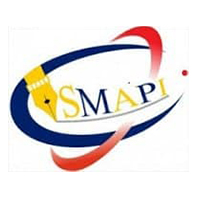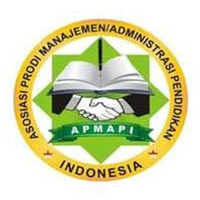Inhibiting Factors and Educational Policy Efforts in Increasing Access to Education in Remote Areas
Downloads
Education policy plays an important role in increasing access to education in remote areas. This study explores various policy strategies that have been implemented to address challenges related to access to education in remote areas, with a focus on their effectiveness and impact. The research method uses descriptive analysis by collecting data from various sources related to education policy and evaluating the implementation of these policies. The research results show that the success of education policies to increase access in remote areas is strongly influenced by cross-sectoral coordination, local community participation and reasonable resource allocation. The importance of this research is the need for greater attention to designing inclusive and sustainable education policies to achieve the goal of equitable education in all regions, including remote areas.
Abd Rahman Getteng, Menuju Guru Profesional dan Ber-Etika, (Yokyakarta: graha Guru, 2011), h. 99
Alba, Cecep (2011), Strategi Peningkatan Mutu Pendidikan di Perguruan Tinggi. Journal of Sociotechnology Edition 24.
Alfasisromarakap., dkk. (2021). Hambatan dan Tantangan Dalam Penyelenggaraan Pendidikan Dasar di Kabupaten Biak Numfor Provinsi Papua di Era Otonomi Khusus Papua. Journal of Education and Teaching Review, Vol. 4, no. 1
Bambang Triatmodjo, Menuju Kejayaan Indonesia, (Yokyakarta: Beta Offset, 2013), h. 141
Firdaus., Sulfasyah., Hanis, N. (2018). Diskriminasi Pendidikan Masyarakat Terpencil. Journal of Sociology of Education, Vol. 6, No. 1.
Ginting, A. M. (2016). Kendala pembangunan provinsi daerah kepulauan: Studi kasus Provinsi Kepulauan Riau. Jurnal Politica Dinamika Masalah Politik Dalam
Negeri dan Hubungan Internasional, 4(1).
Hakim, L. (2016). Pemerataan Akses Pendidikan bagi Rakyat Sesuai dengan Amanat Undang-Undang nomor 20 Tahun 2003 Tentang Sistem Pendidikan Nasional. EduTech Journal, Vol. 2, No. 1
JurnalPost. (2023). Buruknya Akses Pendidikan di Indonesia. Retrieved June 16, 2024, from https://jurnalpost.com/buruknya-akses-pendidikan-di-indonesia/49951/
Listiawati, N. (2013). Pelaksanaan Pendidikan untuk Pembangunan Berkelanjutan Oleh Beberapa Lembaga. Journal of Education and Culture, Vol. 19, No. 3, 430-450.
Maulido, S., Popi, K., Vinanda, R. (2024). Upaya Meningkatkan Pendidikan Masyarakat Di Daerah Terpencil. Sadewa Journal: Publication of Education, Learning and Social Sciences, Vol. 2, No.1
Nasution, E. (Tanpa Tahun). Problematika Pendidikan di Indonesia. Journal of the Faculty of Ushuluddin and Da'wah IAIN Ambon
Rahmadi, I. F. (2020). Pendidikan di Daerah Kepulauan Terpencil: Potret Siswa, Guru, dan Sumber Belajar. Edutama Education Journal, Vol. 7, No.1
Sam M. Chan, Tuti T. Sam, Analisis SWOT: Kebijakan Pendidikan Era Otonomi Daerah, (Jakarta: Rajawali Press, 2011) h.58
Syafii. A. (2018). Perluasan dan Pemerataan Akses Kependidikan Daerah 3T (Terdepan, Terluar, Tertinggal). Journal of Management and Islamic Education, Vol. 4, No. 2
Yosada, K. R. (2017). Pendidikan di Beranda Terdepan Negara Perbatasan Entikong. Proceedings of the National Seminar: Strengthening the Relationship between Skills Development, Education and Employment of the Young Generation (pp. 192-201).
Authors who publish with this journal agree to the following terms:
- The copyright of the accepted for publication articles shall be assigned to Jurnal Manajemen Pendidikan (JuMP) as the publisher of the journal. The intended copyright includes the rights to publish articles in various forms (including reprints).
- Jurnal Manajemen Pendidikan (JuMP) maintain the publishing rights of the published articles.
- Authors are permitted to republish or disseminate published articles by sharing the link/DOI of the article at Jurnal Manajemen Pendidikan (JuMP). Authors are allowed to use their articles for any legal purposes deemed necessary without written permission from Jurnal Manajemen Pendidikan (JuMP) with an acknowledgment of initial publication to this journal.













